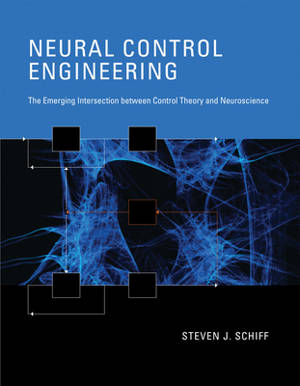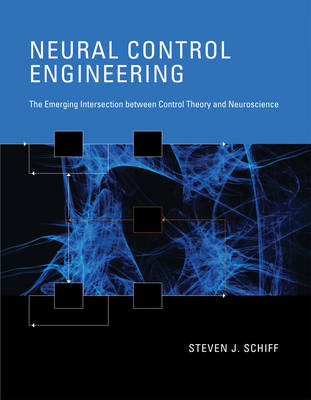
- Afhalen na 1 uur in een winkel met voorraad
- Gratis thuislevering in België
- Ruim aanbod met 7 miljoen producten
- Afhalen na 1 uur in een winkel met voorraad
- Gratis thuislevering in België
- Ruim aanbod met 7 miljoen producten
Neural Control Engineering
The Emerging Intersection Between Control Theory and Neuroscience
Steven J SchiffOmschrijving
Over the past sixty years, powerful methods of model-based control engineering have been responsible for such dramatic advances in engineering systems as autolanding aircraft, autonomous vehicles, and even weather forecasting. Over those same decades, our models of the nervous system have evolved from single-cell membranes to neuronal networks to large-scale models of the human brain. Yet until recently control theory was completely inapplicable to the types of nonlinear models being developed in neuroscience. The revolution in nonlinear control engineering in the late 1990s has made the intersection of control theory and neuroscience possible. In Neural Control Engineering, Steven Schiff seeks to bridge the two fields, examining the application of new methods in nonlinear control engineering to neuroscience. After presenting extensive material on formulating computational neuroscience models in a control environment--including some fundamentals of the algorithms helpful in crossing the divide from intuition to effective application--Schiff examines a range of applications, including brain-machine interfaces and neural stimulation. He reports on research that he and his colleagues have undertaken showing that nonlinear control theory methods can be applied to models of single cells, small neuronal networks, and large-scale networks in disease states of Parkinson's disease and epilepsy. With Neural Control Engineering the reader acquires a working knowledge of the fundamentals of control theory and computational neuroscience sufficient not only to understand the literature in this trandisciplinary area but also to begin working to advance the field. The book will serve as an essential guide for scientists in either biology or engineering and for physicians who wish to gain expertise in these areas.
Specificaties
Betrokkenen
- Auteur(s):
- Uitgeverij:
Inhoud
- Aantal bladzijden:
- 384
- Taal:
- Engels
- Reeks:
Eigenschappen
- Productcode (EAN):
- 9780262015370
- Verschijningsdatum:
- 10/11/2011
- Uitvoering:
- Hardcover
- Formaat:
- Genaaid
- Afmetingen:
- 184 mm x 238 mm
- Gewicht:
- 833 g

Alleen bij Standaard Boekhandel
Beoordelingen
We publiceren alleen reviews die voldoen aan de voorwaarden voor reviews. Bekijk onze voorwaarden voor reviews.












